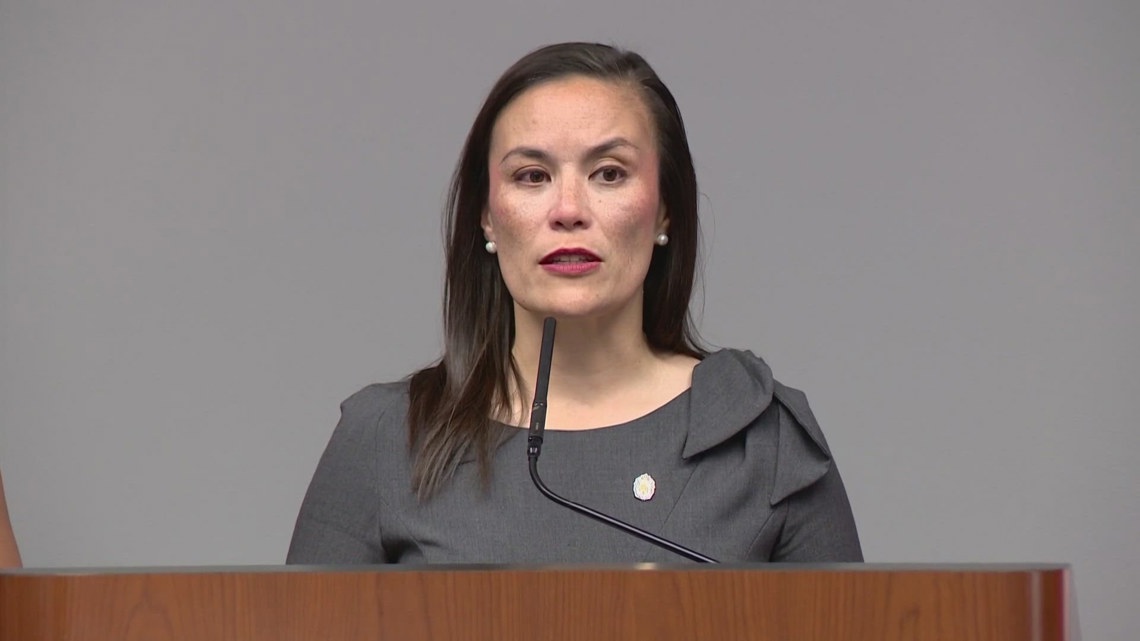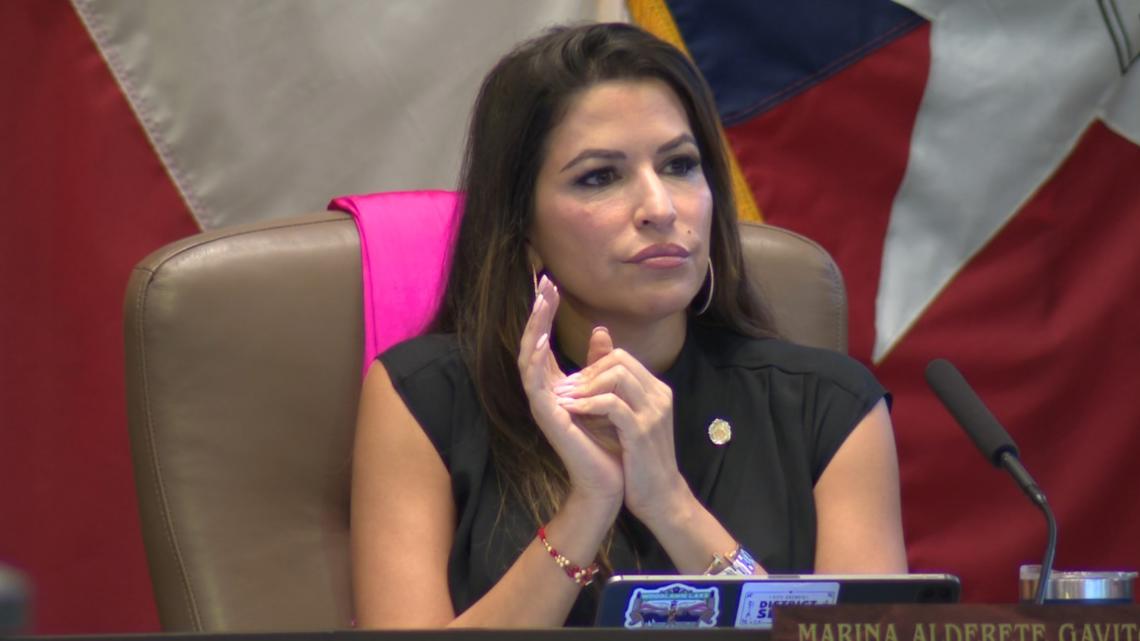Another City Hall power struggle could be brewing as council members are asked to refile all policy requests submitted before Mayor Jones took office.
SAN ANTONIO — Twenty-four hours before Thursday morning’s City Council meeting, San Antonio leaders appeared poised to discuss and potentially approve new rules clamping down on people who abandon dogs or other animals.
On Wednesday night, however, an updated version of the public meeting agenda showed that the item had been withdrawn for consideration. The reason why harkens back to this summer’s stalemate between Mayor Gina Ortiz Jones and a cohort of council members who asserted she was acting unilaterally when she announced she was added new checkboxes to be ticked off when leaders submit a new policy initiative.
The disagreement over whether or not Mayor Jones improperly sidestepped existing city rules was hashed out in a special Aug. 13 meeting. At issue was whether or not there should be a public vote on the matter.
The debate eventually went council members’ way when, a day later, Jones sent a memo to the body saying she wouldn’t be enforcing any changes to the Council Consideration Request (CCR) process, which determines how policy ideas reach full council for approval. Jones had also told council members they would be asked to eventually “identify and share improvements to the process” in order to make it more effective, likely in early 2026.
But council hasn’t been able to get through budget season without the first wisps of smoke from another potential procedural battle.
District 7 Councilwoman Marina Alderete Gavito – whose 2024 CCR seeking to protect peafowl spurred the drafted ordinance for animal abandonment penalties – was told Wednesday evening the agenda item was being removed at the mayor’s request because that CCR was filed before she took office, according to a City Hall source.


A spokesperson for the mayor’s office referred to it as an “expired CCR” that hadn’t yet been discussed in the Governance Committee, typically the first stop for CCRs after they’re submitted to the City Clerk. Yet, according to the city’s public CCR database, it was reviewed by Governance in April 2024 – well over a year before Jones was elected – before moving on to other committees.
“As has been communicated, expired CCRs from the previous council may be resubmitted, and the Governance Committee will decide on how best to move forward once received,” the spokesperson for the mayor’s office said.
That wasn’t explicitly stated in Jones’ Aug. 14 memo, however. And according to an Aug. 26 email obtained by KENS 5, Jones’ chief of staff told council members’ offices that “if the CCR is approved, then no action is required. If the CCR is pending and not approved then action is required.”
The trickle-down effect of Jones’ latest maneuver means a number of CCRs filed over the past year and a half could be in limbo as council members decide whether or not to refile—and start the process all over again.


“City Hall must rise above bureaucratic red tape,” Alderete Gavito said in a statement Thursday. “Leadership may change, but the needs of San Antonio families do not. Government should move swiftly to deliver results on the issues that matter most to our neighborhoods.”
From protecting peafowl to puppies
Alderete Gavito’s original CCR, filed in March 2024, sought to declare San Antonio a bird sanctuary “to protect wild bird populations within city limits,” in turn making the killing, trapping or relocation of wild birds a punishable offense.
Discussions stemming from that CCR evolved as it went through the committee process. They also came to involve input from San Antonio Animal Care Services (ACS).
And on April 15, 2025, ACS staff shared a plan not only to safeguard the city’s birds but also to update San Antonio City Code so that those who abandon any animal – birds, dogs, livestock or otherwise – are made subject to a fine.
Anyone found to have committed animal abandonment in the Alamo City would be slapped with a fine ranging from $500 to $2,000 for a first offense; $1,000 to $2,000 for a second offense; and $2,000 for any violation thereafter. ACS Director Jonathan Gary and other city staff were set to present the proposal before it was pulled.
It’s unclear what’s next for the CCR and any policy changes it spurs in the wake of the mayor’s direction that CCRs from the previous City Council must be resubmitted, which requires that sponsoring council members gather signatures from colleagues before submitting.
District 10 Councilman Marc Whyte – who led a successful effort to streamline and speed up the CCR process under former Mayor Ron Nirenberg – said on social media that the mayor was “blatantly blocking policy that will make our community safer simply because the work on the policy began before she got into office.”
“It’s not right,” Whyte added. “Abandoning animals is WRONG and can be dangerous. San Antonians deserve better.”
Previous procedural battle
Jones was in office for less than a month when she told City Council via a memo that she was implementing changes to the CCR process, requiring council members to get the signatures of the city manager and city attorney upon submission, and also mandating that their offices “coordinate” with her chief of staff.
The blowback came quickly, primarily from a three-member cohort of Whyte, Alderete Gavito and District 5 Councilwoman Teri Castillo, who first sent the mayor a joint memo highlighting their belief that the current process was already orderly and efficient.
The trio discussed a meeting to discuss the changed in public. Two weeks later, they forced a meeting via the submission of a three-signature memo after they said “no effort has been made to discuss and work through” Jones’ proposed CCR changes.
The full council met Aug. 13 to debate the matter. There, Jones said she had the blessing of City Attorney Andy Segovia that her changes didn’t violate the current CCR ordinance, adding she wanted to “minimize the legal risk to our community” by having him review CCRs earlier.
A majority of council members indicated at that meeting that they would want the CCR process to remain as is or else put Jones’ changes up to a vote.
By the next day, the mayor issued her new memo saying council could continue adhering to the steps as outlined in the ordinance.
